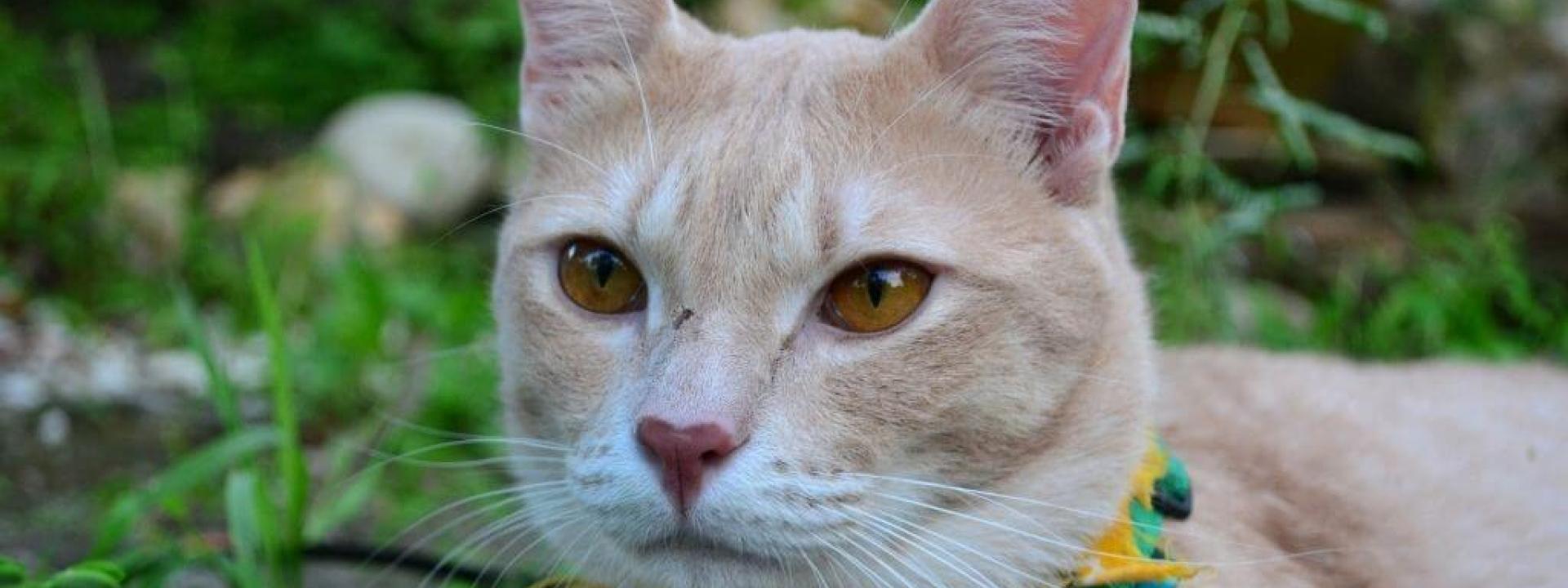Heartworm disease is a serious illness that causes heart failure and lung damage in animals. It also damages other organs and, eventually, leads to death. While most common in dogs, this disease can also affect cats, so protecting your feline friend is crucial.
April is National Heartworm Awareness Month, so we would like to share some vital information about preventing heartworm in cats. As veterinarians, we’ve seen far too many pets suffering from these nasty infections. Keep reading to learn more about feline heartworm disease, its causes, and how you can protect your beloved companion.
What is heartworm disease?
Heartworm disease is an often-fatal disease that affects animals in the United States and many other places worldwide. It is caused by a parasitic worm known as Dirofilaria immitis that grows up to a foot in length and takes up residence in the heart, lungs, and blood vessels. The worms spread via mosquito bites and grow and reproduce once inside a host animal.
Dogs and wild canines, including coyotes and foxes, are natural heartworm hosts. This means that heartworms living inside these animals can grow to maturity and reproduce. In time, their numbers increase, and canines can become hosts to hundreds of worms.
Heartworm Disease in Cats
Heartworm disease is different in cats than in dogs. Because felines are an atypical host, most worms do not reach adulthood and reproduce. As a result, cats usually only have between one and three worms, and many do not have any adult heartworms. Cats are less frequently diagnosed with heartworm disease for this reason. However, it’s important to note that even immature worms can cause serious illness. In cats, they often cause a condition called heartworm-associated respiratory disease, or HARD.
Unfortunately, the medications used to treat heartworm disease in dogs are not safe for cats. Therefore, the only way to protect your cat from this devastating illness is to prevent infection.
How to Prevent Heartworm Disease in Cats
We strongly recommend starting your cat on a heartworm preventative as early as possible and keeping them on it throughout their life. These medications are available in several forms, including pills, topical solutions, and injections. As your cat’s veterinarian, we will help you determine which product best suits your feline friend’s needs.
You should also take steps to prevent mosquito bites. Keeping your cat strictly indoors is an excellent place to start (and protects your cat from much more than just mosquitoes!), but doing so does not provide foolproof protection.
A few ways to lower your cat’s risk of mosquito bites include:
- Keep doors and windows closed, and use screens to keep insects out of your home.
- Clean and change water bowls often.
- Remove sources of stagnant water from your property.
Symptoms of Heartworm Disease in Cats
Cats don’t always show symptoms of heartworm disease. In addition, the symptoms of this illness are primarily nonspecific and often mistaken for signs of other conditions. Sadly, some cats die of heartworm disease without ever being properly diagnosed.
Some of the most common symptoms of heartworm are:
- Coughing
- Asthma-like attacks
- Increased respiratory rate
- Vomiting
- Lack of appetite
- Weight loss
- Decreased energy
Less common symptoms of heartworm in cats include:
- Fainting
- Seizures
- Difficulty walking
- Fluid accumulation in the abdomen
Unfortunately, sometimes sudden death is the first and only definitive sign that something is seriously wrong. If your cat ever exhibits unusual symptoms or you have any reason to think that they could have heartworm disease or another illness, we encourage you to schedule an appointment right away. Cats are stoic creatures and often mask symptoms until they are seriously ill. The sooner you bring them in, the sooner we can figure out what’s going on and begin treatment.
How We Test for Heartworm in Cats
Because cats are unlikely to have adult heartworms, testing cats for heartworm disease can be tricky. We typically perform blood tests before starting cats on heartworm preventative and when we suspect a heartworm infection. We may also use ultrasound or x-rays to look for heartworms in some cases.
Treating Heartworm in Cats
There is, unfortunately, no medication to treat heartworm disease in cats. Because felines are not a natural host, some infections clear up on their own. They can still cause irreparable respiratory damage, though. Cats can also experience severe problems when heartworms die in their body.
If your cat tests positive for heartworm, our goal will be to manage the disease rather than eliminate it. We’ll develop a long-term management plan and may recommend medications to address cardiac and respiratory symptoms, antibiotics, and/or other treatment modalities. We’ll likely recommend repeat testing, too, so we can monitor the process of the disease. Our team will work closely with you to do what’s best for your feline friend and provide the best possible prognosis.
Conclusion
Cats are not as susceptible to heartworm disease as dogs, but it’s still important to keep them on monthly heartworm prevention. There is no approved treatment for cats suffering from this devastating disease, and it proves fatal far too often. Contact us today to get your feline friend started on an effective heartworm preventative.

